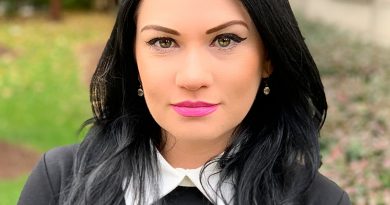Reform Party Candidates Gain Endorsements from SHUNA, Global Current
By Andrea Berman
Staff Writer
Two prominent Diplomacy organizations last week endorsed the Reform Party’s candidates for the School of Diplomacy’s two Student Government Association (SGA) Senate seats. The Global Current, the weekly Diplomacy radio program, and the Seton Hall United Nations Association (SHUNA), the School’s award-winning Model U.N. team, expressed support for Efrain Vallejo and Jacob Abel’s candidacy.
The Global Current decided to extend the Reform Party its endorsement in these elections “after both candidates expressed their vision for the future,” said Liam Scollins, executive producer of the Current. Heather Kwityn, president of SHUNA, added that members of her organization “believe that they will do a fantastic job representing the Diplomacy School and Diplo organizations.”
Other Diplomacy organizations have not publicly endorsed any candidate. The Diplomatic Envoy held one-on-one interviews on Monday with the five candidates – Abel and Vallejo, Gabrielle Goldworm and Samuel Planck, and Colin Kilbourne – but has decided not to release a formal endorsement. It is unclear whether The Global Current or SHUNA extended a similar opportunity to all the candidates. Abel, an incumbent freshman senator, is also a writer for The Global Current and a SHUNA delegate.
Since the interviews, Samuel Planck was disqualified from the election for failing to adequately submit the requirements for candidacy. Although he appealed to the SGA Senate on Monday, the Senate did not find in his favor.
All five candidates were able to speak directly to Diplomacy students on Monday at an election town hall organized by the Undergraduate Diplomacy Student Association (UDSA), the first such event of its kind in the School of Diplomacy. The town hall was moderated by James Zvirbulis, president of UDSA, and Noelle Sorich, president of UNA-USA and the School’s undergraduate youth observer to the United Nations.
Each ticket was given two minutes to deliver opening and closing statements. Questions from the moderators and the audience took up most of the hour-long program.
The Reform Party candidates recognized the importance of promoting the interaction between students and elected representatives. “We plan to hold multiple town hall meetings a semester,” said Vallejo. To improve the communication between students and staff, Vallejo and Abel proposed to hold additional office hours exclusively for Diplomacy constituents and implementing a suggestion box where students can anonymously voice their questions and concerns. The Party’s larger goals include gaining seats on the University’s Board of Trustees.
Kilbourne, an independent candidate, focused on what students are entitled to but are currently not receiving from the university, especially as the Diplomacy School’s two incumbent senators, Michael Roma and Matthew Schaller, “haven’t attended Dulce meetings and haven’t attended town halls,” he said.
Kilbourne is pushing two new events to promote involvement among students, professors, the local community, and professionals in the field of international relations. First, he is interested in arranging a mentor fair for students to meet professionals in the field. The event would be free for SHU students, but students from surrounding universities would have to pay a guest fee as a fundraiser for the School of Diplomacy.
The second event Kilbourne proposed was a panel discussion of students and professors who have live abroad to promote awareness of diversity and multiculturalism, and to serve as a tester for students interested in studying abroad.
The Goldworm-Planck ticket advocated for bi-weekly town hall meetings with the intent to raise awareness on campus about daily events and issues so that there can be an “accurate representation of what students want,” said Planck.
A unique aspect of their platform is addressing student debt by reforming how the University allocates need-based aid, and by reevaluating budgets for campus construction projects and transferring excess funds to a textbook stipend for students.
Goldworm and Planck aim to raise awareness about minority groups on campus, including the LGBTQ and international student body, as well as assisting international students with navigating campus bureaucracy and filling out legal paperwork, a role that the Office of International Program fills.
Finally, Goldworm and Planck want to explore different ways of promoting sexual health on campus, such as by providing free condoms at Health Services or by partnering with a local drugstore to make contraceptives readily available for Seton Hall students, an initiative that administrators may be resistant to due to the University’s Catholic mission.
“They have to realize that Catholic students aren’t the only ones who go here,” said Goldworm.
The SGA election will be on Monday and Tuesday, March 27-28. Diplomacy majors are eligible to vote for four executive board positions (president, vice president, treasurer, and secretary), two Diplomacy senators, and six senators-at-large. Students will receive three separate emails containing each ballot.
A full list of candidates can be viewed HERE.
See the Envoy’s overview of each ticket’s platform HERE.

